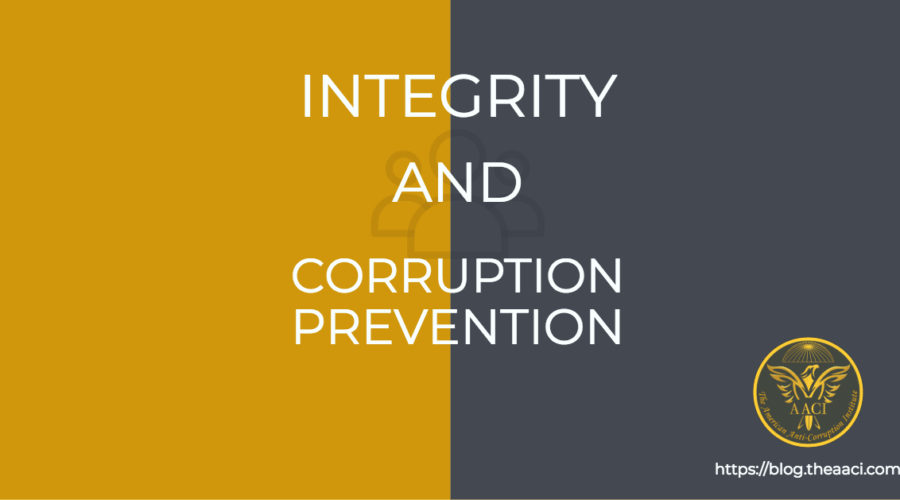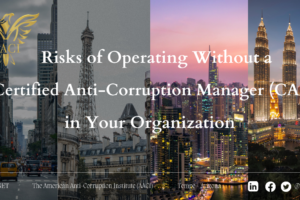
Sr. Director; The Middle East and Africa
Mike@THEAACI.com
March 8, 2019
Corruption prevention is better than its cure. Unfortunately, corruption damages are highly likely irreparable. Even though the corruption phenomenon has been in the limelight over the past two decades, preventing corruption did not receive the proper attention of those charged with governance in all economic sectors. Most significantly, decision makers do not seem to pay adequate attention to the concept of integrity and its importance in the fight against corruption.
The Merriam-Webster dictionary defines integrity as “firm adherence to a code of especially moral or artistic values: INCORRUPTIBILITY” and ” the quality or state of being complete or undivided: COMPLETENESS.” [efn_note]https://www.merriam-webster.com/dictionary/integrity?utm_campaign=sd&utm_medium=serp&utm_source=jsonld, accessed on March 6, 2019. [/efn_note] Integrity is a complex concept and constitutes a pillar in any corruption prevention strategy. Therefore, it is imperative that decision makers understand the attributes of integrity prevailing in their organizations. A prudent leadership realizes that it is a challenging task. It is wise to measure the integrity prevailing in each institution. Unless it is measured, integrity is not expected to be managed properly. Seriously enough, institutional integrity [efn_note]Read more http://satoriproject.eu/media/1.e-Institutional-Integrity.pdf [/efn_note] risks will not be managed effectively.
It is true that life is a sum of choices. It is also true that integrity is a personal or institutional choice. Integrity presumes predictability and consistency. It is attached to all proper and acceptable social virtues. A person of integrity sets expectations about her or his opinion, behavior, and conduct. An organization’s integrity, more or less, reflects, to a great extent, the personal integrity of those charged with governance. The question that is remained to be answered by true leadership is: Can you effectively fight corruption without building integrity into your institutions?











































